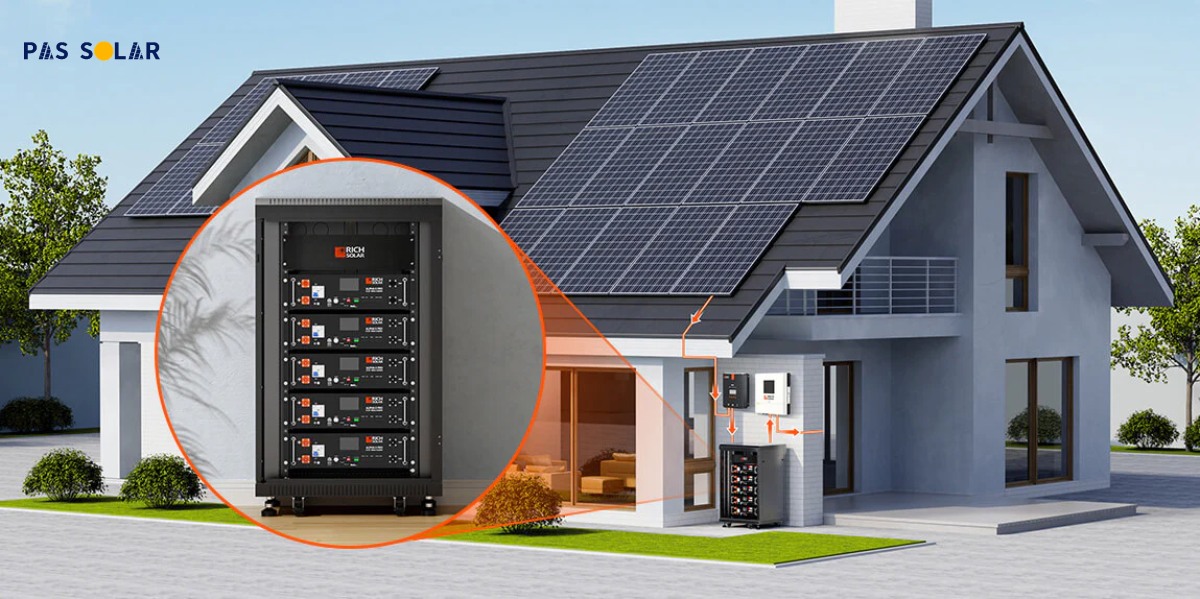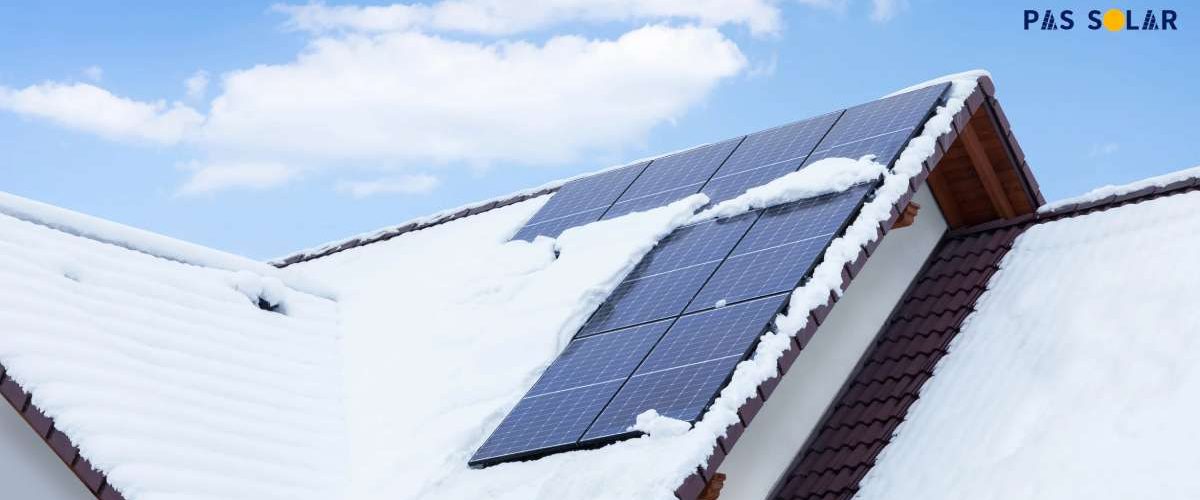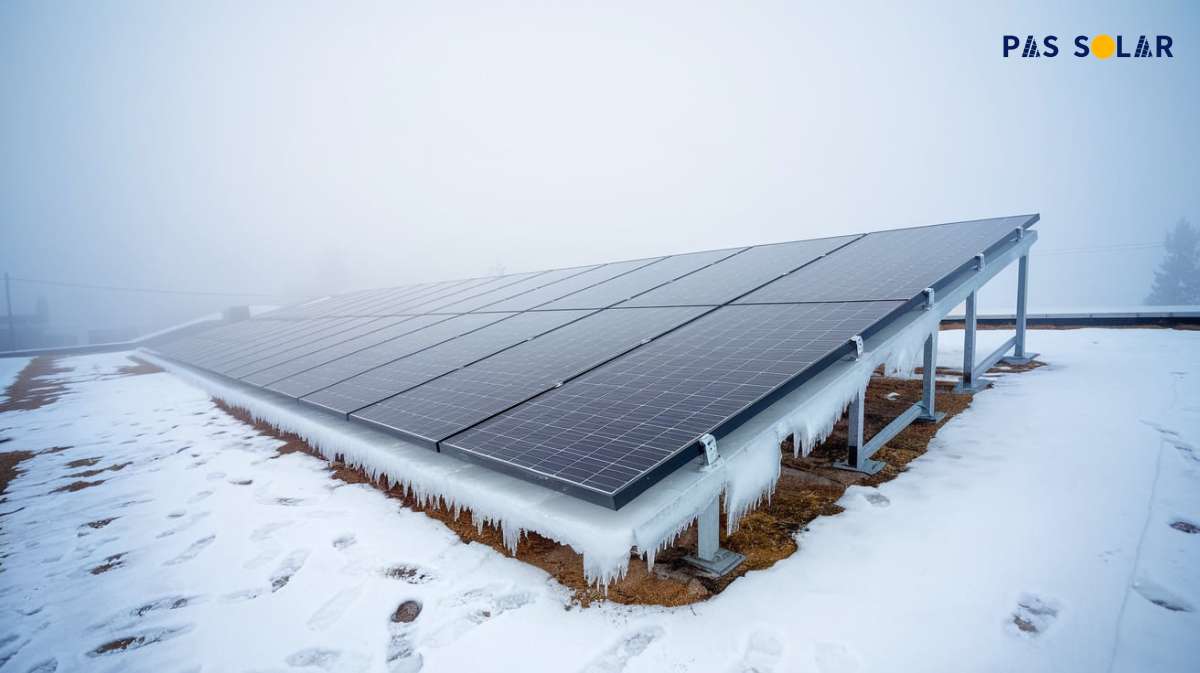

Absolutely. Despite shorter days and colder temperatures, modern photovoltaic (PV) panels are designed to perform efficiently year-round, including in winter conditions. In fact, cold temperatures can actually improve efficiency, sometimes even more than in the heat of summer. Solar panels’ winter performance may vary slightly due to reduced daylight and lower sun angles, but production doesn’t stop. Homeowners often pair solar with battery storage or net metering to balance seasonal differences. So, we can say that winter remains a surprisingly productive season for solar energy, especially when using reliable options like the Growatt solar panel.
| Winter Condition | Effect on Solar Panel Performance | Additional Notes |
|---|---|---|
| Cold Temperatures | Improves solar cell efficiency by reducing system resistance | Cooler temps help PV cells work better, sometimes even more efficiently than in summer heat. |
| Cloudy Weather | Slight decrease in electricity production | Panels still generate power using diffused sunlight, just at a reduced rate. |
| Snow Coverage | Temporary drop in performance if panels are fully covered | Most panels are angled and dark, so snow usually slides off quickly; snow reflection can boost efficiency. |
| Shorter Days | Reduced total daily energy production | Less daylight hours mean less energy overall, but panels still function normally during available light. |
| Low Sun Angle | Slightly lower production | Sunlight hits panels at a lower angle, but panels continue to absorb usable light. |
| Battery Storage / Net Metering | Helps balance seasonal energy production differences | Homeowners can store excess energy or send it back to the grid to offset lower winter output. |
| Sunny Winter Days | Optimal performance | Cold but sunny days can actually boost efficiency and power output. |
| Extremely Low Temperatures (down to -40°C / -40°F) | Panels continue to operate efficiently unless obstructed by snow or ice | Temperature alone rarely stops panels; blockage by snow or ice is the main performance barrier. |
Here’s how winter conditions affect various aspects of solar panels:
|
Condition |
Effect on Solar Panel Performance |
|
Cold Temperatures |
Help solar cells operate more effectively by reducing resistance in the system and improving the efficiency of photovoltaic (PV) cells |
|
Cloudy Weather |
Blocks some sunlight, decreasing efficiency, but solar panels still produce electricity. |
|
Snow Coverage |
Blocks sunlight temporarily; however, snow usually melts or slides off quickly |
|
Shorter Days |
Decrease total daily energy, without reducing the ability of panels to function |
|
Low Sun Angle |
Slightly lower production, still functional, and panels still absorb usable light |
Do Solar Panels Work in Winter Sun? As we say, Yes — and that’s important. While it’s true that solar panels receive less direct sunlight during winter for fewer hours, cooler temperatures can actually increase efficiency and still power your panels. Solar panels use sunlight to generate electricity. Therefore, on sunny winter days, PV systems can operate at optimal levels, especially in snowy regions with reflective surfaces.
While it may seem that way, the reality is different. Solar panels need a minimum amount of light to transform scattered sunlight into electrical energy. They don’t work in complete darkness, but they can generate electricity on overcast days. So while they won’t operate at full capacity during thick cloud cover, they still contribute to your home’s energy needs. That’s why the question “do solar panels work in cloudy weather” is answered with a confident yes — just with reduced efficiency.

Absolutely. Photovoltaic (PV) panels are engineered to perform reliably even in harsh winter weather, especially on snowy days. Snowfall covering solar panels may cause a short-term drop in performance. However, do solar panels work in snow? Yes, just not while buried under it.
Fortunately, most panels are installed at an angle and have smooth, dark surfaces that naturally absorb heat and help snow slide off quickly. In many cases, snowy landscapes can enhance performance by reflecting more sunlight onto the panels, a phenomenon known as the albedo effect. So, while snow may cause brief interruptions, it isn’t necessarily a major obstacle.
Solar panels don’t stop working at any specific low temperature. Most systems are rated to operate efficiently in conditions as cold as -40°C (-40°F). The real challenge isn’t temperature it’s obstruction. Light is unable to reach the panel’s surface when it’s completely blocked with snow or ice. Once cleared, performance returns to normal. So, freezing temps alone won’t prevent your panels from producing energy.
So, Can You Use Solar Panels in the Winter? Yes they’re more resilient and capable than many expected. With proper installation and system planning, solar panels continue generating clean energy throughout the colder months of the year. Whether under cloudy skies, light snow, or crisp winter sun, your solar investment keeps working hard even when you’re curled up inside with a hot drink. For remote locations or backup solutions during winter outages, an Off grid Growatt Inverter can further enhance your system’s reliability and independence.
For those looking for reliable, high-quality solar solutions, Passolar offers expertly designed solar panels and inverters built to withstand diverse weather conditions, including harsh winters. With Passolar’s innovative technology and dedicated support, you can trust your solar system to deliver consistent performance no matter the season.
PAS SOLAR is a Distributer of solar equipment based in UAE. Composed of a team of professionals with the goal to provide customers with the latest Tier 1 Solar system in the region.
"*" indicates required fields